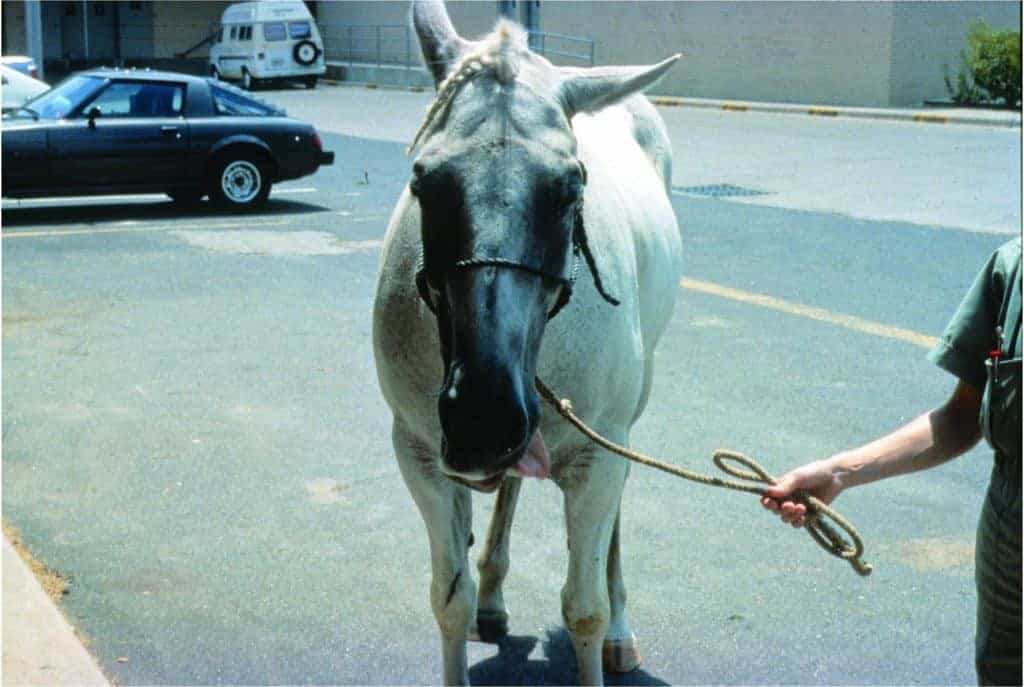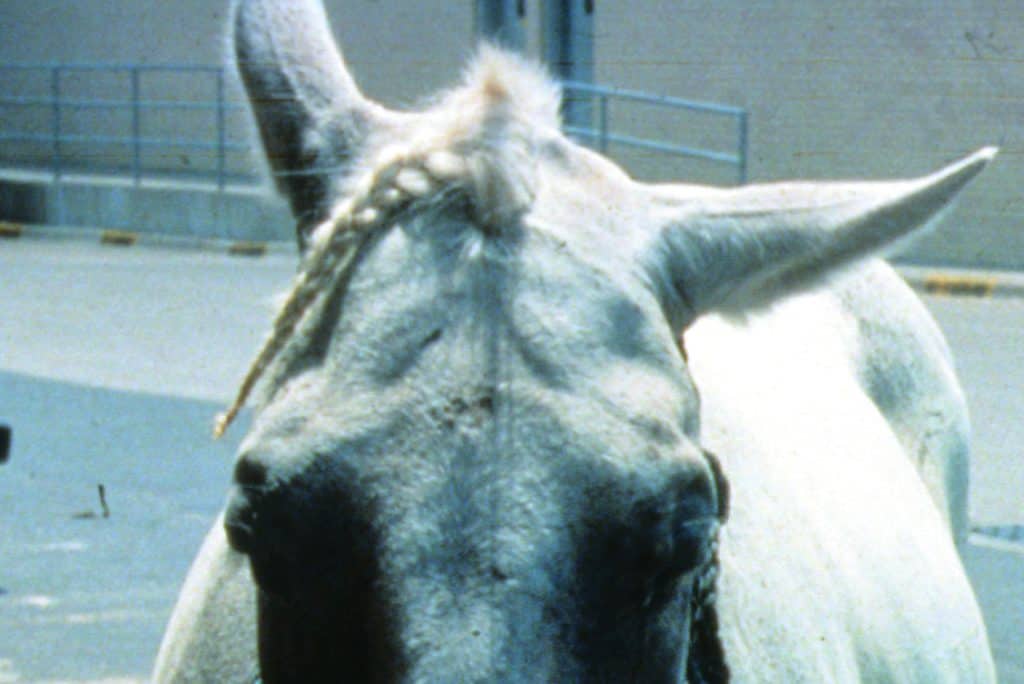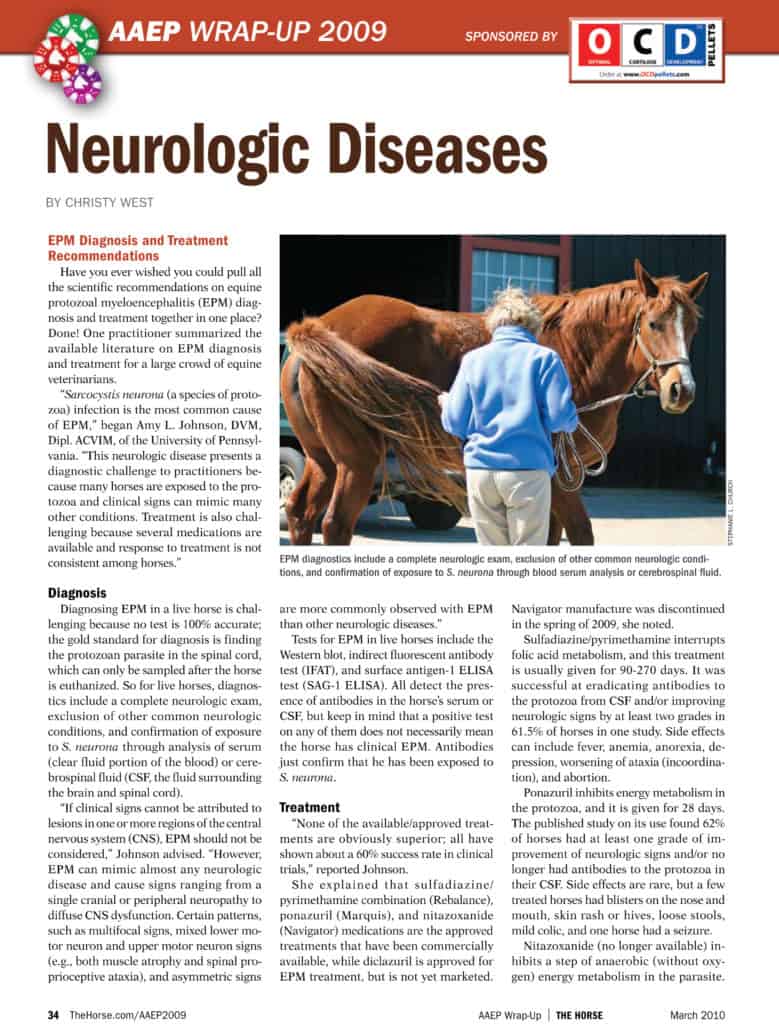Cervical Stabilization and S. Neurona Horse Courses Archived
The newest Horse Courses were filmed at the 2011 Advances in Equine Neurological Disease Symposium.
The newest Horse Courses were filmed at the 2011 Advances in Equine Neurological Disease Symposium.

An in-depth discussion of the protozoan parasite S. neurona and EPM, which it causes.
Featured topics included equine protozoal myeloencephalitis, wobbler syndrome, and neurologic herpesvirus.

Researchers discuss the parasite’s life cycle, EPM diagnostic testing, and the S. neurona genome project.
Attendees discussed hoof lameness, club feet, track surface’s effect on lameness, back and neck pain, and EPM.

Four veterinarians discuss equine protozoal myeloencephalitis (EPM) diagnosis, what conditions it can appear to be, and effective treatment strategies.
TheHorse.com’s free “The Many Faces of EPM Take 2” webinar will be held on Sept. 27.

EPM still frustrates horse owners and veterinarians as one of the most common neurologic diseases in horses.
Neurologist Amy Johnson, DVM, Dipl. ACVIM, was recently appointed to the faculty of New Bolton Center.
Researchers have made great strides in their understanding of EPM and improvements in diagnostic and treatment
Now is the time for horse owners to assess the lingering effects of spring’s wet weather.

Four veterinarians discuss equine protozoal myeloencephalitis (EPM) diagnosis, what conditions it can appear to be, and effective treatment.
Diagnostic assays for equine protozoal myeloencephalitis (EPM) developed under the leadership of Daniel Howe, PhD, a molecular parasitologist at the University of Kentucky Gluck Equine Research Center, are now available exclusively at Equine Diagnostic Solutions LLC (EDS).

Diagnosis and treatment recommendations for equine protozoal myeloencephalitis (EPM), the evolution of West Nile virus, and a new treatment option for equine herpesvirus were discussed at the 2009 convention of the American Association of Equine Practitioners.
Strategies to identify specific problems in a horse with indistinct or unusual gait deficits, particularly if
Diagnosing EPM in a live horse is challenging because no test is 100% accurate; the gold standard for diagnosis is finding the protozoan parasite in the spinal cord, which can only be sampled after the horse is euthanized. So for live horses, diagnos
Stay on top of the most recent Horse Health news with
"*" indicates required fields